What I’ve been reading this month
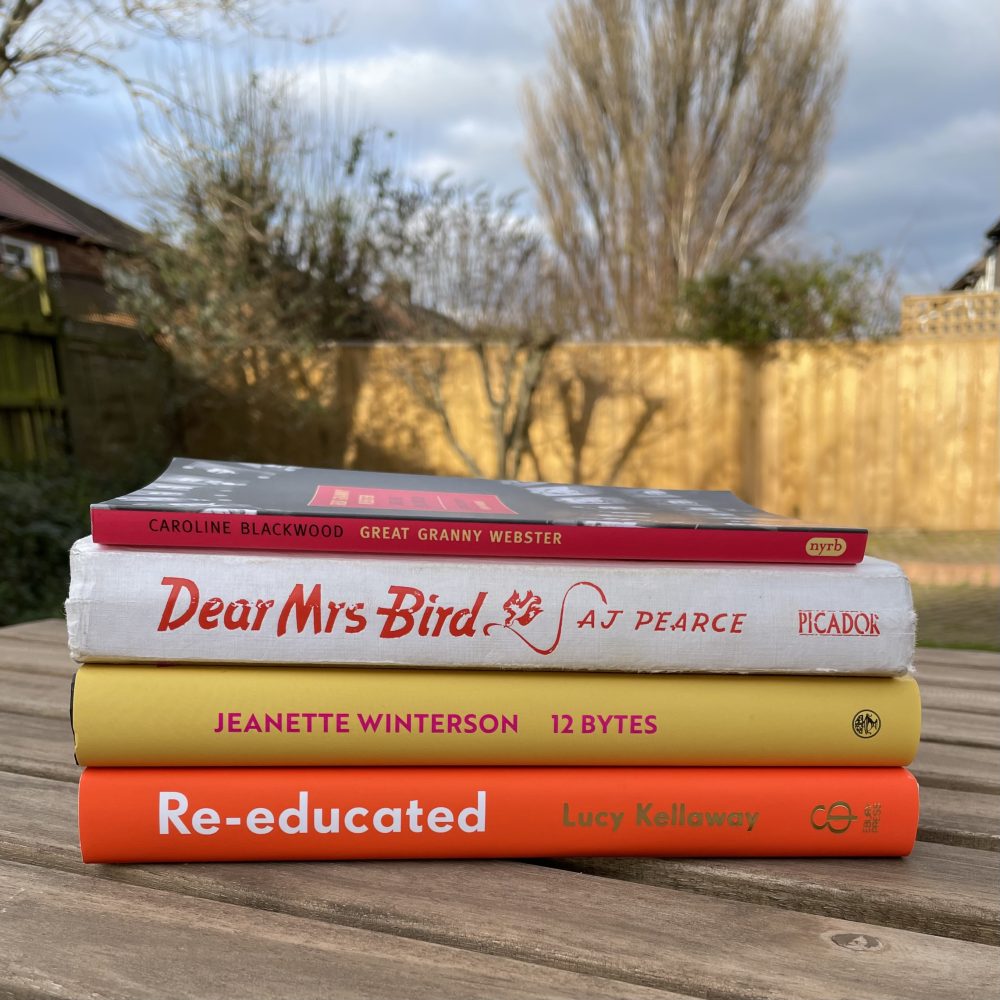
I’ve five books to tell you about this month: one didn’t make it into the photo above, as it was already back at the library!
12 Bytes by Jeanette Winterson
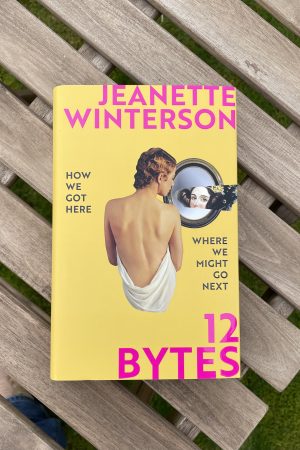
This recently published non-fiction book looks at the future of humanity’s relationship with computers generally and artificial intelligence specifically. Winterson draws lessons from the past, in particular from the industrial revolution, and sketches out how our future might look.
I learned a lot from this book and found Winterson’s absorbing. Her arguments about how the future might look are compelling. As with any great writing, Winterson brushes by fascinating tangential ideas which cause a lot of thought and reflection. Two of these ideas stood out for me in particular.
The first was Winterson’s discussion of effective immortality, or the idea that we could upload our consciousness to a device and continue to think forever. The thought horrifies me: the idea of living forever, of going on and on and on without any sense of progress or completion, totally repulses me. I hadn’t realised how strongly I felt about this until I read this book. And Winterson gently challenges that response, pointing out that it is essentially selfish, denying humanity the benefit of infinite life experience (and perhaps wisdom). A lot to chew on and unpack there!
The second was Winterson’s impassioned plea for science to involve writers. Precision, and perhaps even beauty, is essential in scientific communication, and is a dying art. This chimes with my own ideas about the field of medicine, where clinical guidelines are increasingly poorly and imprecisely expressed, often leading to competing interpretations. This ought to be a key lesson of the pandemic, but I strongly suspect it won’t be learned.
(An aside: I was once involved in writing some national guidance, and suggested a simplified reworking of over-complex advice. Others on the committee felt like it read too much like common sense. I asked what was wrong with guidelines that reiterate common sense if that’s what the evidence supported. I was told quite plainly by the Chair that “common sense” wasn’t the sort of thing this particular national body produced; which raised far more questions than it answered, at least in my mind.)
Additionally, publications in the medical literature are ever-more narrowly targeted as sub-sub-specialities talk to themselves in their own coded language. This has, perhaps, been more broadly recognised, but the response is typically an inelegant press release for public consumption, rather than much-improved writing in the first place.
I think you can probably tell that I thought this book was brilliant, and I haven’t stopped thinking about it since I put it down.
Great Granny Webster by Caroline Blackwood
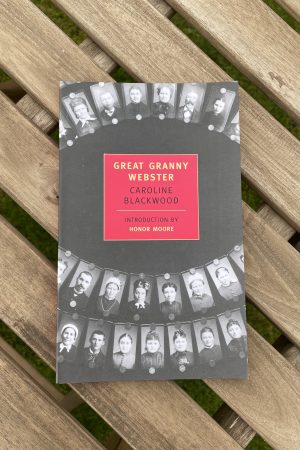
This 1977 semi-autobiographical novel is chock-full of dark humour. In the post-war period, a teenage girl is sent to convalesce after an illness with her great-grandmother, who she barely knows. Great Granny Webster turns out to be an ice-cold matriarch, seemingly to the point of caricature, at least when seen from the teenager’s viewpoint.
Yet, as the novella progresses, it becomes clear that the titular character is just one among many remarkable and off-beat women in the family, and we begin to understand a little of their background. It may be a “youngest child” thing to find this reminiscent of family conversations about unknown and unplaceable distant relatives—but that’s how it felt to me.
I found this funny, macabre, and strangely moving—it feels like there is a lot in its 108 pages.
Re-educated by Lucy Kellaway
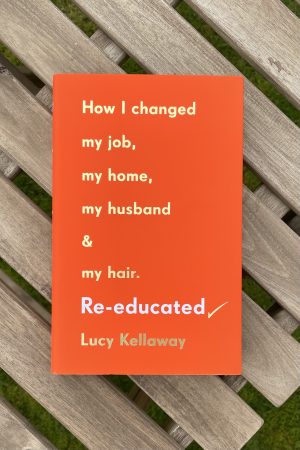
I used to avidly read Lucy Kellaway’s Financial Times column, and even listened to the podcast version after that launched. When she announced in 2016 that she was leaving to become a secondary school teacher, I was surprised and intrigued.
Re-educated is a recently published memoir of this period of Kellaway’s life, in which she also left her husband, moved into an architecturally notable house, and stopped dyeing her hair. As with Kellaway’s columns, she injects wry humour throughout, while also writing with emotion and honesty.
I enjoyed this, but it’s a little difficult to disaggregate my feelings about this book from the fact that I already liked Kellaway and her writing.
When We Cease to Understand the World by Benjamín Labatut
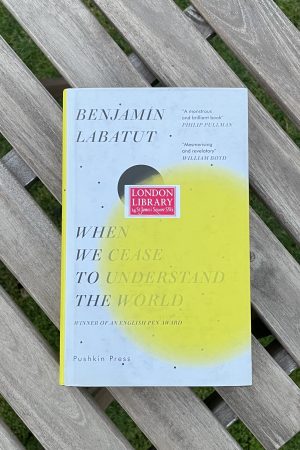
Winner of an English PEN Award, and shortlisted for the International Booker Prize, I read the 2020 translation by Adrian Nathan West of this book—novel?—by the Chilean writer Benjamín Labatut.
The book consists of five stories about major scientific discoveries and the many unexpected negative consequences that flowed from them. The first of the five stories is almost entirely factual, and the amount of fiction in each account gradually increases. It is a book about the boundaries of science and thought, and the personal and worldly consequences of pushing them.
People much better-read and more intelligent than I have found much to love about this book. I found its premise intriguing, but the book itself really quite dull. It had some nice imagery, including a great passage about the life cycle of citrus trees (which I don’t know whether was fact or fiction), but I found much of the prose really quite wooden. I was also surprised by how much the integration of fact and fiction annoyed me: I wanted to know which bits were true, and found this a bit of a barrier to immersion in the story.
I think this is perhaps a book that would reward close study far more than my disappointing casual reading of it.
Dear Mrs Bird by AJ Pearce
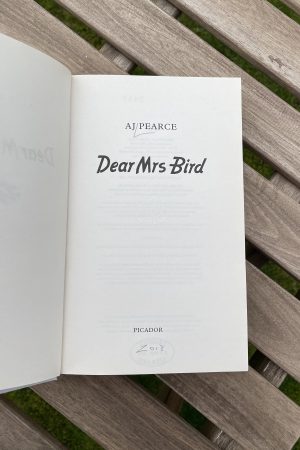
This is a novel which was published in 2018. I picked it up after reading some press coverage of the release of the sequel: it was explained that Pearce had been inspired to write the novel after gaining insight into the lives of women who lived through the Second World War through her study of women’s magazines of the period.
The protagonist, Emmy Lake, is an aspiring journalist in her early 20s who gets a job typing the ‘agony aunt’ page of such a magazine. Unfortunately, she’s also intensely irritating, though the author seems to see her as sympathetic. Interfering, overbearing and terribly earnest, Emmy is a character I simply couldn’t warm to, which rather spoiled the book.
The writing style also grated, with Unnecessary Capitalisation of Random Words, and a frightfully annoying use of adverbs that came to feel like a parody of BBC radio announcements of the period.
The plot was astonishingly predictable and most of the characters barely have two-dimensions, let alone three.
This was just not up my street.
This post was filed under: What I've Been Reading, AJ Pearce, Benjamín Labatut, Caroline Blackwood, Jeanette Winterson, Lucy Kellaway.